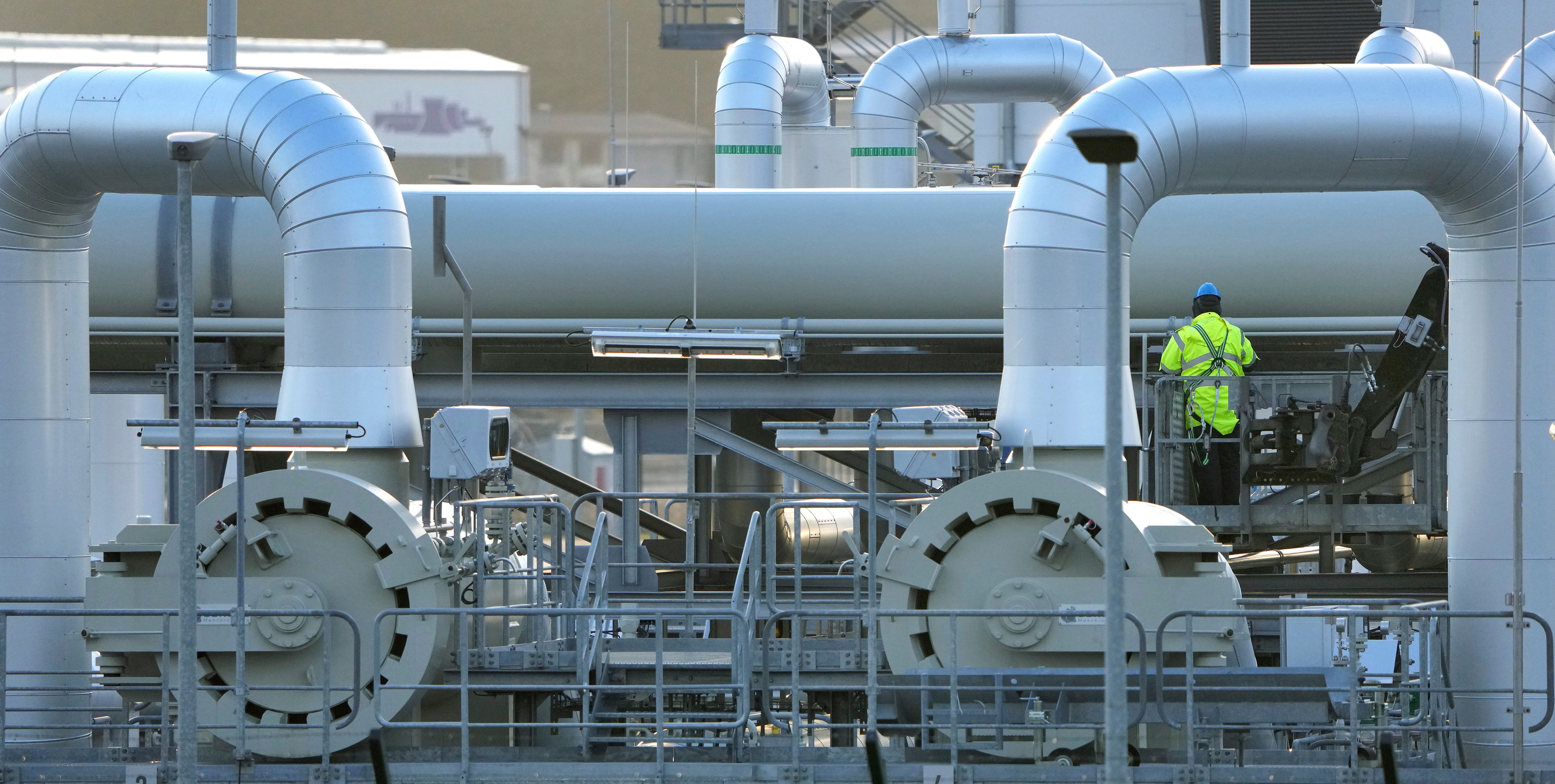Russia accuses British navy of blowing up Nord Stream gas pipelines in Baltic Sea
Ministry of Defence responds by accusing Moscow of ‘resorting to peddling false claims of an epic scale’
Russia has accused British navy personnel of being involved in a “terrorist attack” on the Nord Stream gas pipelines.
The major Baltic Sea supply route from Russia to Europe was severely damaged in “powerful explosions” last month, in what is being investigated by Germany, Sweden and Denmark as an act of sabotage.
Moscow has repeatedly claimed that allegations it was behind the blasts on 26 September are “stupid”, and has sought to blame the West.

Now Vladimir Putin’s regime has directly accused the UK – a Nato member – of being involved in an attack on critical Russian infrastructure.
“According to available information, representatives of this unit of the British navy took part in the planning, provision and implementation of a terrorist attack in the Baltic Sea on September 26 this year – blowing up the Nord Stream 1 and Nord Stream 2 gas pipelines,” Russia’s defence ministry said.
The ministry did not provide evidence for its claims, also alleging that the same British military specialists – supposedly located in the city of Ochakiv, in Ukraine’s Mykolaiv region – helped Kyiv’s forces to plan a drone attack on Russia’s Black Sea fleet on Saturday morning.
Moscow said it had destroyed all of the drones involved in the alleged attack in Crimea’s Sevastopol Bay, and that its sea minesweeper Ivan Golubets had sustained minor damage.

Britain’s Ministry of Defence responded by accusing its counterpart in Moscow of “resorting to peddling false claims of an epic scale” in order to “detract from their disastrous handling of the illegal invasion of Ukraine”.
“This latest invented story says more about the arguments going on inside the Russian government than it does about the West,” a spokesperson said.
Rear Admiral Chris Parry, a retired British naval officer, told Sky News that Moscow’s claim was “a straight lie”, adding: “You always have to be suspicious of what the Russian defence ministry says.
“It’s hardly the ministry of truth, and Russian propaganda right now always accuses everybody else of doing what they in fact have done. There’s no capability for the Royal Navy or anybody in the UK offshore industry to be able to blow up those pipelines. It’s a straight lie, and we all know the Russians did it.”

Russian state TV hosts have previously accused both British military divers and the United States of being behind the pipeline explosions, while Russian officials have claimed that Washington had the motive of wanting to sell more gas to Europe. The US has denied involvement.
The damage to the pipelines came just weeks after Russia’s state-owned supplier Gazprom announced it was closing the 745-mile Nord Stream 1 line “indefinitely”, blaming technical problems and supply issues caused by Western sanctions.
The second Nord Stream pipeline had only recently been completed and had not yet become operational, but plans to start the flow of Russian gas were shelved by Germany just prior to Mr Putin’s invasion of Ukraine in February.
It is now unclear whether the pipelines will again be used to transport gas from Russia to Europe, with Germany, Denmark and Sweden all having launched separate investigations into the explosions.
Save for a letter sent by Danish and Swedish investigators to the UN three days after the attack, which concluded that “several hundred kilograms” of explosives had caused the blasts, none of the three nations has yet released further information.
“There is a lot of secrecy still going on,” Jens Wenzel Kristoffersen, a commander in the Danish navy and a military analyst at the University of Copenhagen, told The New York Times. “The reason is simply because they have to be absolutely sure. When they have results, they have to be based on quite hardcore facts and not just speculation.”
Mr Kristoffersen told the paper he believed it was unlikely that any of the investigators would make an announcement “until they have this smoking-gun evidence”, adding that uncertain findings “could lead to reactions which would not be helpful at this point of time”.
Join our commenting forum
Join thought-provoking conversations, follow other Independent readers and see their replies
Comments

Bookmark popover
Removed from bookmarks